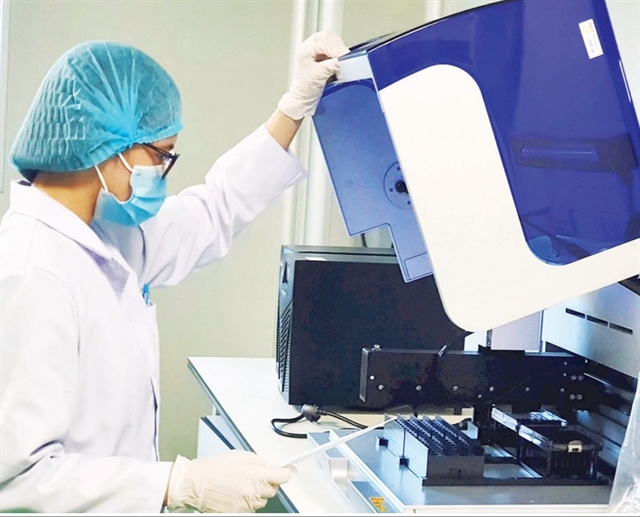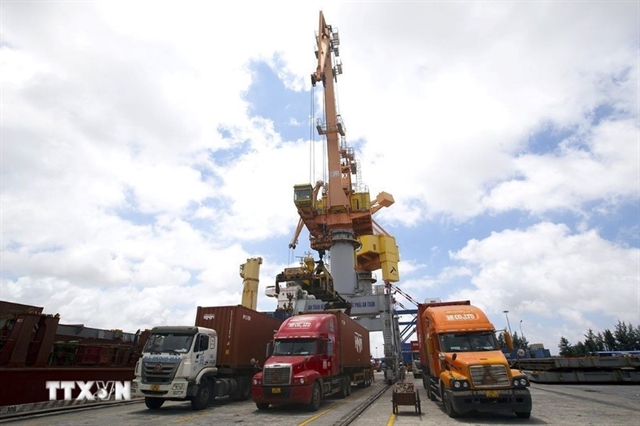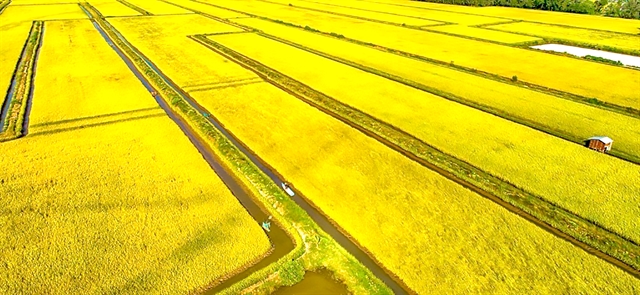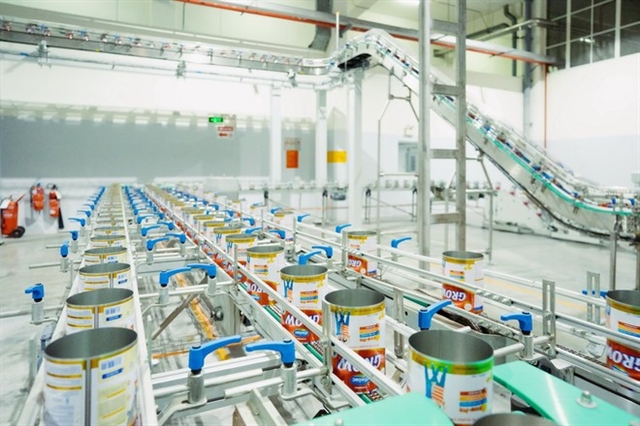 Society
Society

 |
| Caption: Rice fields in Cà Mau Province’s Vĩnh Mỹ Commune. Most rice-growing areas owned by members of local co-operatives are harvesting mechanically. – VNA/VNS Photo |
CÀ MAU – Agricultural co-operatives in Cà Mau Province play an increasingly vital role in linking rice production and consumption, helping farmers secure markets and increase their incomes.
The southernmost province now has 612 co-operatives, including 484 in the agricultural sector.
In Vĩnh Mỹ Commune, members of the Vĩnh Cường Agricultural Service Co-operative no longer worry about finding buyers thanks to contract-based production.
Nguyễn Quốc Hưng, a member, said he joined the co-operative in 2016 and has since included his 5.4ha rice field in its large-scale rice production model.
“From land preparation, seeding, fertilising, and spraying to harvesting, everything is mechanised. The co-operative guarantees outlets after harvest, with prices always higher than market rates.”
Thanks to the co-operative, his family grows three rice crops a year, with yields of seven to nine tonnes and profits of VNĐ15–20 million (US$570-760) per hectare per crop, he said.
Trịnh Văn Cường, chairman of the co-operative, said it now has nearly 500 official members and more than 10,000 linked members.
The co-operative organises rice production, supplies agricultural materials, provides mechanised services, and ensures product consumption for farmers, he said.
“In the past, farmers were happy to earn VNĐ1–2 million ($38–76) per 1,000 square metres per crop. Now, they make an average profit of VNĐ3 million ($110), which has improved living standards and strengthened trust in collective economic development.”
The Quyết Tiến Co-operative in Phước Long Commune has also operated effectively by establishing production-to-consumption chains.
It manages nearly 140ha of land, of which about 100ha is devoted to rice cultivation.
Besides supplying materials and harvesting services, it guarantees product consumption for members at prices 5–6 per cent above the market rate.
Trương Thanh Tuyền, chairman of the co-operative, said: “When joining the production chain, members receive agricultural materials at competitive prices and guaranteed quality. They are also trained to apply science and technology to reduce production costs and raise profits.”
According to the Cà Mau Co-operative Alliance, production–consumption linkages in rice farming have helped improve field management, reduce costs, and increase profits for members, contributing to the sustainable development of the rice sector.
Approximately 30 per cent of the province’s rice-growing area is involved in such linkages, with closed production–consumption chains considered the most sustainable models.
Strengthening links
Nguyễn Văn Vũ, chairman of the province’s Co-operative Alliance, said the alliance is working with relevant sectors to raise awareness of the importance of agricultural production along value chains.
It also helps capable co-operatives join pilot models linking production and consumption, he said.
“We are creating favourable conditions for co-operatives with sufficient resources, credibility, and stable output to build and expand pilot models of closed production–consumption chains.
“At the same time, we are developing large fields associated with growing area codes and building geographical indications, labels, and brands to enhance value chains and promote rice exports.”
Many co-operatives in the province are also exploring new directions to increase product value.
The Chí Phải Co-operative in Vĩnh Mỹ Commune is registering for growing area codes and developing products that meet the standards of the national “One Commune – One Product” (OCOP) programme.
Quách Văn Vĩnh, deputy director of the Chí Phải Co-operative, said it has sold more than eight tonnes of OCOP rice to markets inside and outside the province.
“In the coming time, we will expand production and markets to increase profits for our members.”
According to its Department of Agriculture and Environment, the province is promoting the implementation of Government Decree 98/2018/NĐ-CP on encouraging co-operation and linkages in agricultural production and product consumption.
The agricultural sector plans to continue to support value chain models, expand raw material areas and select capable co-operatives to connect with purchasing enterprises.
Phạm Văn Mười, deputy director of the department, said:
“With these comprehensive measures, the province’s rice production and consumption chains will become stronger and more sustainable, helping farmers improve efficiency and increase incomes.
“We will gradually move from simple linkages to full value chains, thereby creating higher added value for local rice products.” – VNS




